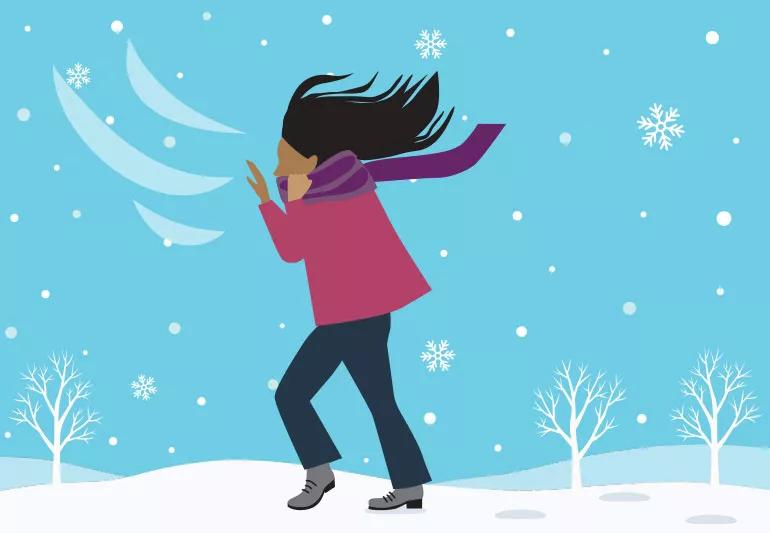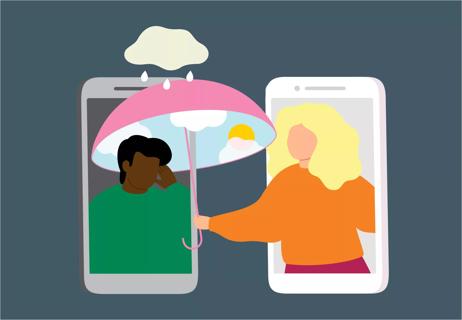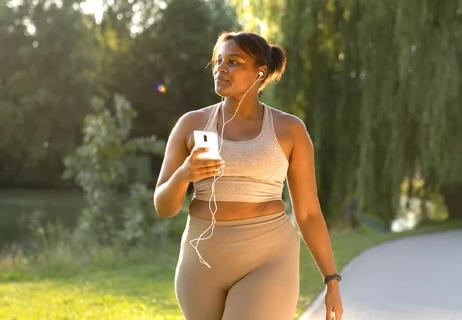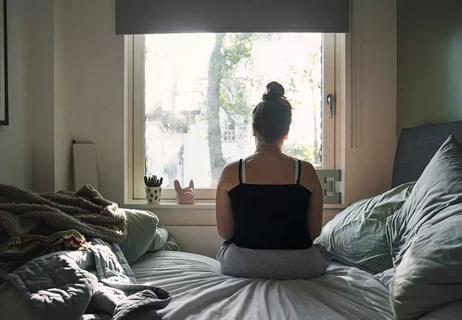An expert explains how seasonal weather changes affect our health

Every year it’s the same, as the calendar transitions from fall to winter. The brisk winds sweep in, the temperatures drop, and suddenly, you’re besieged by sneezing and coughing. First comes the cold weather, then the cold.
Advertisement
Cleveland Clinic is a non-profit academic medical center. Advertising on our site helps support our mission. We do not endorse non-Cleveland Clinic products or services. Policy
While the annual change from warm to cold weather can seem to lead to illness, it’s helpful to know how that might happen and why, and what we can do to prevent it. To get some answers, we talked to family medicine expert Neha Vyas, MD.
First, it’s important to make a distinction: “The change of temperature doesn’t make you sick but changes in weather conditions can predispose you to getting sick,” says Dr. Vyas. And there are three main factors that feed the rising rates of illness during these weather changes.
Advertisement
Winter is also the peak season for certain viruses, particularly influenza, that typically don’t survive as well during the warmer months.
While allergies are a year-round problem for many, seasonal allergies that occur in the fall when the temperatures first drop can lead to lingering issues for many. Ragweed is the most common fall allergen, but other weeds, like mugwort and sagebrush, can also generate pollens that trigger allergies in cooler weather.
Again, this isn’t the drop in temperature directly causing you to be sick. But certain conditions that occur when the temperature drops certainly make you more vulnerable.
While you can never fully prevent yourself from getting sick, there’s plenty you can do to protect yourself and decrease the chances of illness.
One habit that’s taken root during the pandemic and could be a great benefit onward is masking. While wearing masks as a preventative measure has become regular in the U.S. because of COVID-19, it was a regular flu-season practice in other parts of the world long before the pandemic.
“Wearing a mask indoors, especially when you’re around a group of people whose immunity or vaccination statuses are unknown, is a great idea,” says Dr. Vyas.
Another helpful habit is to make sure you stay warm, particularly while doing outdoor activities. “We lose a lot of heat from our head, fingers, toes, ears, nose and mouth so those are the places you want to keep covered to maintain warmth and protect your body’s immune system,” she says.
The need to remain properly hydrated is as important for your health during cold weather as it is during warm weather. “You may not realize that the air is drier and you may not feel as thirsty but it’s important to maintain proper hydration,” Dr. Vyas notes.
The same goes for maintaining a balanced diet, she says. “Fresh fruits, vegetables and the Mediterranean diet can go a long way to making you feel and stay healthy.”
As for the idea that an intake of vitamin C can help keep you healthy, Dr. Vyas points out that data doesn’t really back that claim but it doesn’t do you any harm.
Here are four other things Dr. Vyas recommends making part of your routine to stay healthy when the cold weather comes to town:
Taking these measures helps protect you and your family from getting sick and getting stuck in that perpetual cycle of passing around a cold or flu virus for weeks at a time. They may not make the cold temperatures go away, but at least you’ll be healthier while you wait on the warmer climate of spring.
Advertisement
Learn more about our editorial process.
Advertisement

Major life events and trying times can trigger reactive depression symptoms, like prolonged sadness, irritability and hopelessness

Sitting near a light box for about half an hour a day can help treat this form of fall/winter depression

Light therapy can boost sleep and help fight depression

People with high-functioning depression may not seem depressed on the outside, but the condition can cause turmoil on the inside

More than just ‘deep sadness,’ this complex condition is often a whole-body experience

Learning your warning signs can help push back against an episode of depression

If you experience warm weather seasonal depression, you’re not alone

Cozying up with friends and family can make cold, dark days more meaningful

Wearing a scarf, adjusting your outdoor activities and following your asthma treatment plan can help limit breathing problems

Your diet in the weeks, days and hours ahead of your race can power you to the finish line

When someone guilt trips you, they’re using emotionally manipulative behavior to try to get you to act a certain way